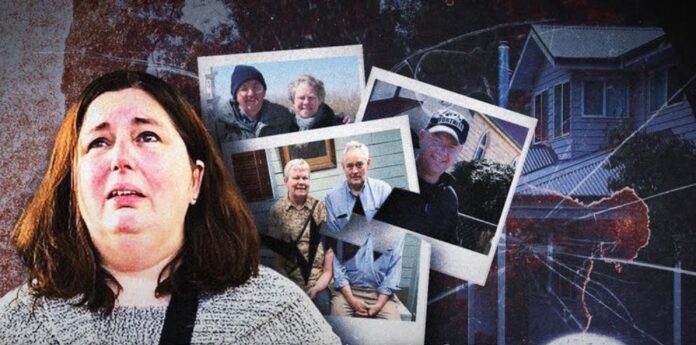Erin Patterson’s legal team says there’s no motive, no proof, and only ‘absurd’ theories of guilt.
On day 35 of one of Australia’s most bizarre and closely watched murder trials, Erin Patterson’s defence team delivered a dramatic closing argument, dismissing the prosecution’s case as “absurd”, “illogical”, and “convoluted”.
Patterson, 50, has pleaded not guilty to three counts of murder and one count of attempted murder after she served a beef wellington lunch allegedly laced with death cap mushrooms to her in-laws in July 2023. Three guests died, and a fourth was hospitalised. The case has since gripped the nation, with each twist scrutinised under the public microscope.
Appearing at the Latrobe Valley Magistrates Court in Morwell, defence barrister Colin Mandy SC attacked the credibility of the prosecution’s core propositions. He focused the jury’s attention on four major claims, which he argued lacked substance, logic, and evidentiary backing.
Firstly, he challenged the idea that Patterson had committed the alleged crimes without any clear motive. “Are we really to believe,” Mandy asked the jury, “that a woman would murder her former in-laws without reason? No financial incentive, no history of animosity, nothing?”
Secondly, he addressed the accusation that Patterson had lied about having cancer to lure her guests to the lunch. Mandy labelled the claim “a stretch” and “an implausible narrative built on speculation, not facts.”
The third point of contention was what Mandy described as a “bizarre” notion—that Patterson assumed her guests would keep her alleged medical deception a secret, even in the event of their deaths. “The prosecution wants you to believe she banked on the dead taking lies to the grave,” Mandy told the jury. “It’s not only absurd, it’s offensive to your intelligence.”
Finally, Mandy dismantled what he called the “illogical fantasy” that Patterson thought she could brush off three sudden deaths as a mere case of gastroenteritis. “No rational person believes that,” he said. “It defies both science and common sense.”
Mandy also reminded jurors that Patterson had subjected herself to “an incredible amount of scrutiny” by giving evidence—something she had no legal obligation to do. “She could have remained silent. Instead, she answered every question.”
In a particularly emotional segment, the defence argued that Patterson herself became ill after the fateful lunch. Medical records, they said, confirm her hospitalisation—further undermining the theory that she knowingly poisoned the meal.
The jury also heard there was no definitive evidence that Patterson had seen online posts about death cap mushrooms, despite media speculation about her activity on the app iNaturalist.
Her actions after the lunch were dissected again on Thursday. Much was made about her discharging herself from hospital—a move the prosecution painted as suspicious. The defence insisted it was motivated by panic and emotional stress, not guilt.
Justice Christopher Beale concluded the day by addressing the jury directly. “It’s more important than ever,” he told them, “that you have a good weekend. Come back Tuesday refreshed.” Beale is expected to spend two days delivering his charge to the jury before they begin their deliberations.
What started as an unremarkable family lunch has become a legal thriller featuring toxic mushrooms, emotional trauma, and media frenzy. Now, it’s up to twelve jurors to decide if this was a calculated act of murder or an unimaginable tragedy.
Court will resume at 10.30am on Tuesday, when final instructions will be handed down and the jury begins to consider its verdict.
